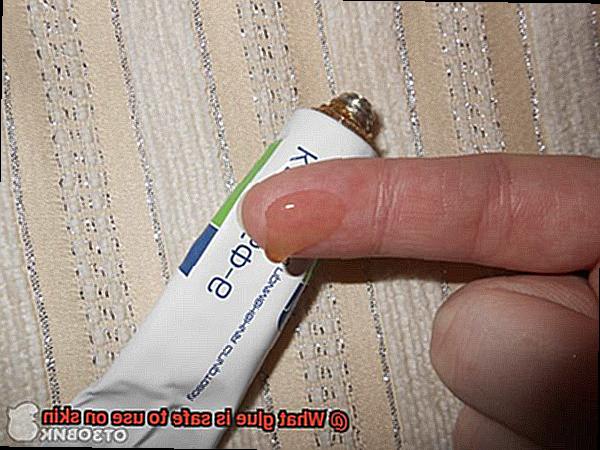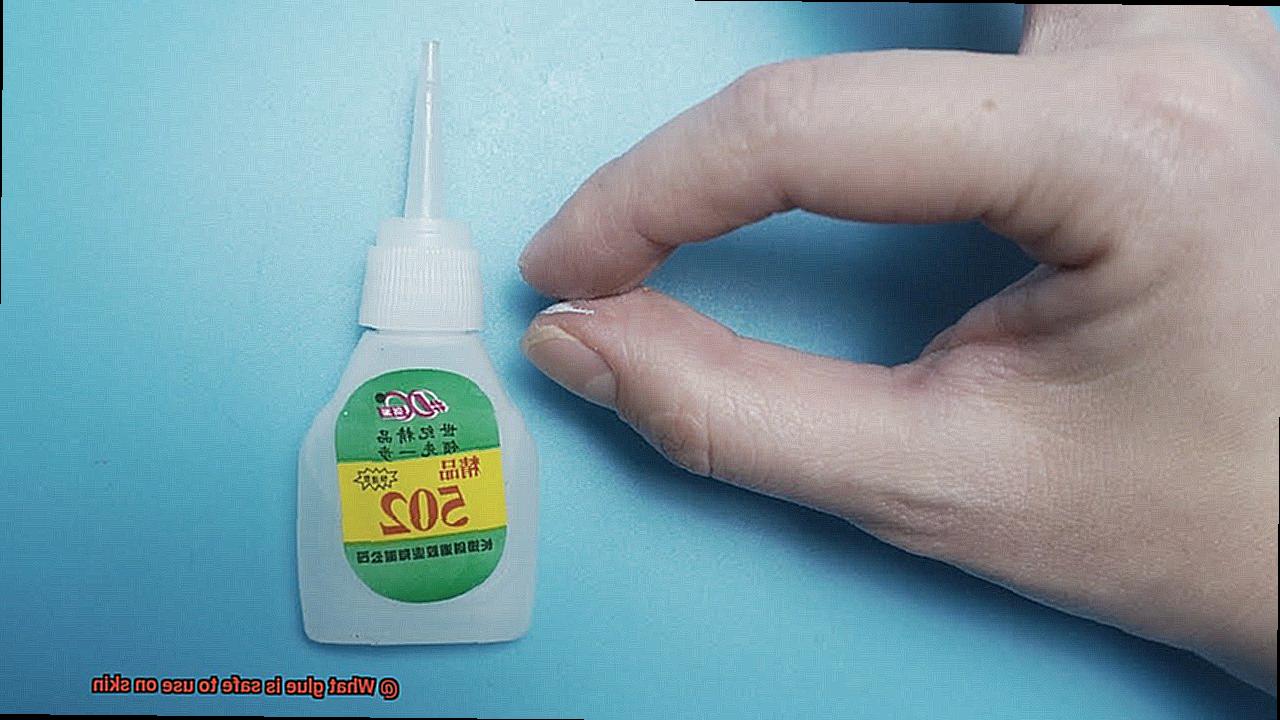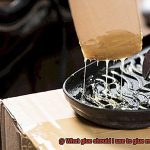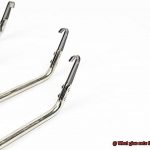Welcome to our exciting blog post where we dive deep into the captivating question: what glue is safe to use on skin?
Whether you’re a craft connoisseur or just dealing with pesky paper cuts, finding the perfect adhesive for your skin is absolutely essential. With a plethora of options at your fingertips, it’s crucial to understand which glues are not only safe but also gentle enough for our delicate skin.
So join us as we unravel the enigma that is safely and confidently gluing your skin.
What is Medical Adhesive?
Contents
- 1 What is Medical Adhesive?
- 2 Benefits of Using Medical Adhesive
- 3 What is Cosmetic Adhesive?
- 4 Benefits of Using Cosmetic Adhesive
- 5 Are Craft Glues Safe for Skin Use?
- 6 What to Consider When Choosing a Craft Glue
- 7 Household and Industrial Glues: A Big No-No.
- 8 How to Remove Inappropriate Glues from the Skin
- 9 Conclusion
When it comes to medical procedures involving the skin, a strong and safe adhesive is essential. Medical adhesive, also known as medical glue or skin adhesive, is designed specifically for use on the skin. In this article, we’ll explore the world of medical adhesive – what it is, its benefits, and why it’s crucial to use approved adhesives on the skin.
What is Medical Adhesive?
- Definition: Medical adhesive is a specialized glue formulated for use on the skin. It is often made from cyanoacrylate compounds or other biocompatible polymers that bond quickly when exposed to moisture.
- Biocompatibility: Medical adhesives are safe for use on the skin and do not cause adverse reactions or harm to the body.
- Types: There are different types of medical adhesives, including those used for wound closure, surgical incisions, and attaching medical devices to the skin.
Advantages of Medical Adhesive:
- Strong and reliable: Medical adhesive provides a secure bond, holding wound edges together and reducing the risk of infection.
- Faster healing: By allowing wounds to close naturally, medical adhesive promotes faster healing.
- Comfortable alternative: Unlike traditional closure methods like sutures or staples, medical adhesive eliminates the need for invasive techniques, making it more comfortable for patients.
- Cosmetically favorable: Medical adhesive often results in less noticeable scarring compared to traditional closure methods.
Safety Considerations:
- Avoid household or industrial glues: These can cause skin irritation, allergies, or toxic effects.
- Approved options: Stick to medical adhesives specifically formulated and tested for safety and effectiveness in medical applications.
- Cosmetic adhesive: Cosmetic adhesives designed for beauty applications like false eyelashes can also be a safe option for skin glue.
Benefits of Using Medical Adhesive
Imagine having a minor cut or incision that needs to be closed. In the past, this would mean enduring stitches or sutures, but now there’s a superhero-like adhesive that can save the day – medical adhesive, also known as skin glue or surgical glue. This incredible glue is specifically designed for use on the skin and offers numerous benefits for wound closure.
Firstly, medical adhesive provides a strong and reliable bond that effectively holds the edges of a wound together. This not only promotes faster healing but also reduces the risk of infection. And the best part? No needles or sharp instruments required. Unlike traditional stitches or sutures, medical adhesive doesn’t require any puncturing or piercing of the skin, saving you from unnecessary pain or trauma.
But that’s not all. Medical adhesive is quick and easy to apply, saving precious time and resources in medical settings. Within minutes, medical professionals can apply the adhesive, reducing overall wound closure time. Its flexibility allows it to conform to the contours of your skin and move with your body, eliminating discomfort and restricted mobility.

Speaking of mobility, medical adhesive is waterproof and breathable, allowing you to shower and go about your daily activities without compromising the integrity of the wound closure. It acts as a barrier against external contaminants like bacteria or dirt, reducing the risk of infection. Plus, it provides a protective layer over the wound, resulting in better cosmetic outcomes and reduced scarring compared to traditional stitches or sutures.

What is Cosmetic Adhesive?
Cosmetic adhesive, also known as skin-safe adhesive, is a specialized glue formulated specifically for use on the skin. It’s like a superhero for your skin, providing a secure hold while keeping it safe and happy. But what sets cosmetic adhesives apart from regular glue? The answer lies in their hypoallergenic nature.
Unlike traditional adhesives that can cause allergic reactions or irritate the skin, cosmetic adhesives are carefully formulated with ingredients that are less likely to trigger allergies or sensitivities. Say goodbye to redness, itchiness, and discomfort. These adhesives are free from harmful chemicals like latex and formaldehyde that can wreak havoc on sensitive skin.
Now let’s explore the different forms of cosmetic adhesive. Picture this: liquid adhesives for those intricate applications, like attaching small prosthetic pieces or securing delicate body art designs with precision and finesse. And then there are adhesive tapes and strips, your go-to solution for larger prosthetics or theatrical makeup that needs to stay in place throughout the day. Convenience at its finest.
But wait, there’s more. Cosmetic adhesives not only prioritize skin safety but also deliver a robust and reliable bond. They can withstand all the movement, sweat, and action that comes with a day full of adventures. Whether you’re performing on stage, dancing up a storm, or simply flaunting some fabulous body art, your adhesive has got your back.
Now, let’s talk about responsible adhesive usage. Remember to follow the instructions provided by the manufacturer. Each adhesive may have its own unique application techniques and removal instructions to ensure optimal results without compromising your skin’s well-being. And if you have sensitive skin or known allergies, don’t forget the importance of a patch test. Safety always comes first.
So whether you’re a professional makeup artist creating stunning looks, a performer captivating audiences, or an individual expressing yourself through body art, cosmetic adhesives are your secret weapon. They offer a safe, reliable, and secure solution for all your adhesive needs. Embrace the power of cosmetic adhesives and stick with confidence, my glue-loving friends.
Benefits of Using Cosmetic Adhesive
Let’s delve into the multitude of benefits that come with using these little wonders.
First and foremost, safety is a top priority when it comes to cosmetic adhesives. Specially formulated with hypoallergenic ingredients, these adhesives are gentle on the skin, minimizing the risk of allergic reactions or irritation. Say goodbye to redness and discomfort, and hello to flawless beauty.
Now, let’s talk about the star of the show – the secure hold. Whether you’re flaunting false eyelashes, prosthetics, or dazzling gems, cosmetic adhesive has got your back. It provides a reliable bond that keeps your cosmetic accessories in place for hours on end. No more embarrassing moments when your lashes decide to make an unexpected escape – with cosmetic adhesive, everything stays exactly where it should be.
Versatility is another major advantage of these adhesives. From your face to your lips and even body art, you can use cosmetic adhesive on various parts of your body. Let your creativity run wild as you explore different looks with confidence, knowing that your makeup will stay intact throughout the day or night.
But wait, there’s more. Cosmetic adhesive is also waterproof and sweat-proof. Rain or shine, humid or wet conditions, this adhesive won’t budge or melt away. So go ahead and dance the night away at that wedding or party – your makeup will stay flawless.
Removing cosmetic adhesive is a breeze compared to regular adhesives. Simply gently peel it off without any discomfort or damage to your skin. It’s easy-peasy and hassle-free.
And here’s the cherry on top – there’s something for everyone. Cosmetic adhesives come in various formulas, including latex-free options for those with latex allergies. No matter your sensitivities or preferences, you can find a suitable product that meets your needs.
Accessibility is key in the world of beauty, and cosmetic adhesive delivers. You can easily find it in beauty stores or online platforms, without the need for a prescription or professional intervention. Experiment with different looks at your convenience and embrace the power of cosmetic adhesives.
Are Craft Glues Safe for Skin Use?
Craft glues have become a staple for DIY projects and adding that extra flair to our makeup looks. However, when it comes to using craft glues on our skin, we need to proceed with caution. Let’s explore the safety of craft glues for skin use and discover some alternatives that ensure both creativity and skin health.
One of the primary concerns with using craft glues on the skin is the potential for allergic reactions. Craft glues often contain chemicals like formaldehyde, which can cause skin irritation and allergic reactions, especially in individuals with sensitive skin. Nobody wants to deal with a red, itchy mess on their face or body.
But it doesn’t stop there. Some craft glues may even contain toxic substances like toluene or xylene, which are not meant to come into contact with the skin. These ingredients can lead to chemical burns or severe irritation—definitely not the look we’re going for.
In addition to the potential risks, craft glues may not have the adhesive strength required for the movements and flexing of our skin. Picture this: you spend hours creating a stunning design on your face using craft glue, only to have it peel off within minutes because it can’t handle your fabulous dance moves. Talk about a party pooper.
Furthermore, removing craft glues from the skin can be quite a challenge. Harsh solvents or scraping may be needed, which can further irritate our delicate skin. It’s like trying to remove glitter from your carpet—frustrating and potentially damaging.
But fear not. There are safe alternatives available specifically designed for use on the skin. Medical adhesives like liquid bandages or medical-grade adhesive tapes are formulated to be hypoallergenic and safe for direct contact with the skin. These superhero adhesives keep everything in place without causing harm.
If you’re still determined to use craft glues on your skin despite the potential risks, there are precautions you can take. Perform a patch test by applying a small amount of glue to a small area of your skin and wait for 24 hours to check for any allergic reactions. Avoid applying glue on sensitive areas or broken skin. And here’s a pro tip: use a thin layer of petroleum jelly or a non-toxic adhesive barrier cream as a protective layer between the glue and your skin. This can help protect your precious skin and make the removal process easier.
What to Consider When Choosing a Craft Glue
When it comes to getting crafty and using glue on your skin, safety is the number one priority. But with so many options out there, how do you choose the perfect glue that won’t harm your skin? In this blog post, we’ll explore the essential factors to consider when selecting a craft glue that is safe for skin use.
Adhesive Strength:
The adhesive strength of the glue is an important consideration. Depending on the project you’re working on, you may need a glue that provides a strong bond or one that allows for easy removal. If you’re attaching heavier materials or need a long-lasting hold, opt for a glue with high adhesive strength. On the other hand, if you’re working with delicate materials or want to be able to remove the glue easily without damaging your skin, choose a glue with lower adhesive strength.
Toxicity:
It’s crucial to choose a craft glue that is safe and non-toxic for use on skin. Look for glues that are specifically labeled as safe for skin use. These glues are often formulated with gentle ingredients that are less likely to cause irritation or allergic reactions. Avoid using regular household glues or adhesives, as they may contain harsh chemicals that can be harmful to the skin. Always read the product description or label to ensure that the glue is free from toxic substances.
Drying Time:
Consider how quickly the glue dries, especially when working on skin. Quick-drying glues are ideal for those who are impatient or working on tight schedules. They allow you to move on with your project without waiting for extended periods of time. However, keep in mind that fast-drying glues may not provide as strong of a bond as slower-drying ones. If you need a stronger and more durable bond, choose a glue with longer drying time.
Clean-up Requirements:
Consider the clean-up requirements of the glue. Some glues can be easily removed with soap and water, while others may require a solvent or special cleaning agent. If you want to be able to remove the glue easily without causing any discomfort or skin damage, opt for a glue that is labeled as removable or washable. This will save you time and effort when it comes to removing the glue from your skin.
Cost:
Lastly, consider the cost of the craft glue. Craft glues are available in a wide range of prices, so choose one that fits within your budget. Keep in mind that higher-priced glues may offer better adhesive strength or faster drying time, but this may not always be necessary depending on your specific project. Consider the features and benefits of different glues and choose one that provides the best value for your money.
Household and Industrial Glues: A Big No-No.
When it comes to glue safety, using household and industrial glues on your skin is a recipe for disaster. These glues, like super glue or epoxy, may be powerful when it comes to bonding materials together, but they are not meant for skin contact. Trust me when I say it’s a big no-no.
Let’s dive deeper into why these glues are so unsafe. Household glues contain strong chemicals, such as cyanoacrylate, that can cause severe skin irritation or burns. Imagine the discomfort and pain that can result from applying these glues to your delicate skin. It’s definitely not worth the risk.
But it gets even worse when it comes to industrial glues used in manufacturing processes. These glues often contain toxic substances that can lead to chemical burns or allergic reactions on the skin. Yikes. Using them on your skin is like inviting trouble.
So why are these glues such troublemakers? One reason is their lack of flexibility. Our skin needs to move and stretch naturally, but household and industrial glues don’t allow for that. When glued, your skin becomes restricted and may even tear or cause pain when subjected to movement. Not exactly what we want, right?
And here’s the cherry on top: removing these glues from your skin is a nightmare. They stick like crazy and can be incredibly challenging to remove without causing further damage. Picture painful abrasions or tearing – not a pretty sight.
To avoid any sticky situations (pun intended), always read the labels on household and industrial glues. Manufacturers explicitly state their unsuitability for skin contact, so don’t ignore those warnings. Instead, opt for glues that are specifically formulated for use on the skin.
How to Remove Inappropriate Glues from the Skin
Finding yourself with glue on your skin can be a sticky situation. Whether you’re working on a craft project or using certain adhesives, it’s important to know how to safely remove inappropriate glues from your skin. Some glues can cause irritation, allergies, or even burns, so it’s crucial to handle the situation correctly. Don’t worry, we’ve got you covered with some helpful tips.
Act Swiftly:
When it comes to removing inappropriate glues from your skin, time is of the essence. The longer the glue remains on your skin, the harder it becomes to remove. So as soon as you notice the glue, spring into action.
Tackling Super Glue:
Super glue is notorious for causing sticky situations. To safely remove it from your skin, reach for some acetone or nail polish remover. Dab a small amount onto a cotton ball or swab and gently apply it to the affected area. Let it sit for a few minutes to dissolve the glue, then carefully peel it off. Remember, don’t pull or rip at your skin.
Handling Craft Glue:
Craft glues can be a bit more forgiving. Start by soaking the affected area in warm soapy water for a few minutes. Then, using a soft cloth or sponge, gently scrub the glue away. The warm water will help dissolve and loosen the glue, making it easier to remove without causing harm.
Dealing with Medical Adhesive:
If you accidentally get medical adhesive on your skin, don’t panic. This type of adhesive is designed to be safe for use on the skin. Reach for some baby oil or olive oil and gently massage the area where the adhesive is stuck. The oil will help break down the adhesive, allowing you to remove it without causing further discomfort.
Other Types of Glues:
Wood glue or fabric glue can also find their way onto your skin. In these cases, it’s best to follow the manufacturer’s instructions. Look for specific solvents or cleaners recommended for safe removal. Avoid using harsh chemicals or scraping at the glue, as it can damage your skin.
When in Doubt, Seek Medical Assistance:
If the glue doesn’t come off easily or you experience any skin irritation or burns, it’s time to seek medical advice. A healthcare professional can provide guidance and recommend specialized products or treatments to remove stubborn glues safely.
vDLrxILRwfA” >
Conclusion
When it comes to gluing things to our skin, safety should always be the top priority. And that’s why finding the right glue that is safe for use on skin is crucial. You don’t want to end up with irritated or damaged skin because of a poor choice in adhesive.
Fortunately, there are some options available that are specifically designed for use on skin. One such option is medical adhesive, which is commonly used in hospitals and clinics for wound closure and securing medical devices to the skin. This type of glue is formulated to be gentle on the skin while still providing strong adhesion.
Another safe option is eyelash glue, which is designed to be used near the delicate eye area. It is typically made with non-toxic ingredients and formulated to be hypoallergenic, minimizing the risk of skin irritation.
For temporary applications like costume makeup or special effects, cosmetic adhesive can be a good choice. These glues are specifically formulated for use on the skin and are often water-based, making them easy to remove without causing damage.
It’s important to note that even with these safer options, it’s always best to do a patch test before applying any glue directly onto your skin. This involves applying a small amount of glue on a small area of your skin and waiting for any adverse reactions before proceeding with larger applications.
In conclusion, when it comes to gluing things onto your skin, prioritize safety by choosing adhesives specifically formulated for use on the skin. Whether it’s medical adhesive, eyelash glue, or cosmetic adhesive, make sure you do a patch test first and always follow the instructions provided by the manufacturer.






